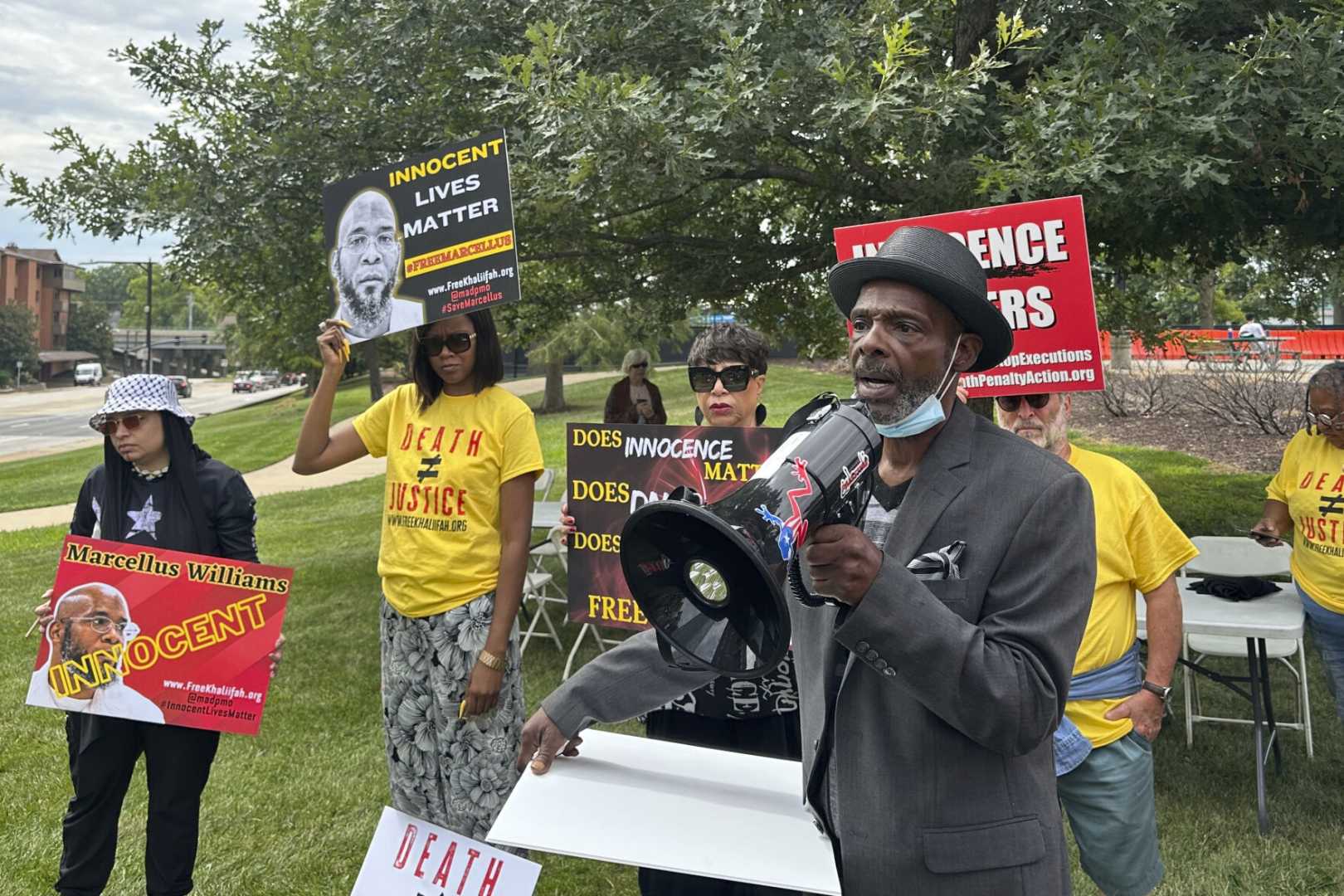News
Advocates Rally to Halt Execution of Marcellus Williams Amid DNA Evidence

Today, advocates for Marcellus “Khaliifah” Williams gathered outside the Missouri Supreme Court, where his appeal was heard in a final attempt to halt his execution scheduled for tomorrow, September 24th. This appeal hearing represents one of the last legal avenues to save the life of a man who has been wrongfully convicted for over 20 years.
Williams was sentenced to death in 2001 for the 1998 murder of former Post-Dispatch reporter Felicia Gayle, a crime for which DNA evidence now indicates his innocence. Yet, despite this crucial evidence, Missouri courts and the state’s Attorney General continue their efforts to carry out the execution, highlighting systemic issues within the American judicial system.
Michelle Smith, Co-Director of Missourians for Alternatives to the Death Penalty (MADP), emphasized the injustice of the case, questioning whether “finality of a judgment overrides a human person’s life.” Smith criticized comments from the Attorney General about the necessity of judicial finality, stating, “Nothing should be above actual justice.”
Smith also pointed out inconsistencies in how justice is applied, referencing a case in Kansas City concerning Eric DeValkenare, who was convicted of murder. She noted that the Governor signaled a potential pardon for DeValkenare, questioning the so-called finality of judgment in that case.
Further complicating matters, the latest ruling from St. Louis County Judge Bruce Hilton on September 13th, which upheld Williams’ conviction, has led his legal team to appeal once again. The conviction was originally secured on testimony from two witnesses who were compensated for their statements, and no forensic evidence linked Williams to the crime scene. A predominantly white jury decided the case, raising concerns about racial bias in the judicial process.
Nimrod Chapel, President of the Missouri NAACP, supported Smith’s views, arguing that the Attorney General’s focus on finality overlooks the larger question of truth and justice. “The prosecutor’s job is to get to the truth, and they’ve failed time and again,” Chapel asserted.
As the execution date looms, over half a million people nationwide, including numerous faith leaders, have called on Governor Mike Parson to intervene and halt the execution. Chapel urged continued pressure on the governor, asking citizens to demand an immediate stay of execution.
Williams’ case highlights broader systemic issues within the criminal justice system, particularly around racial bias and the use of capital punishment. His trial was marked by an all-too-common racial disparity, with 11 white jurors and only one Black juror. Advocates argue that the case reflects a pattern of racial violence endemic in the justice system.












